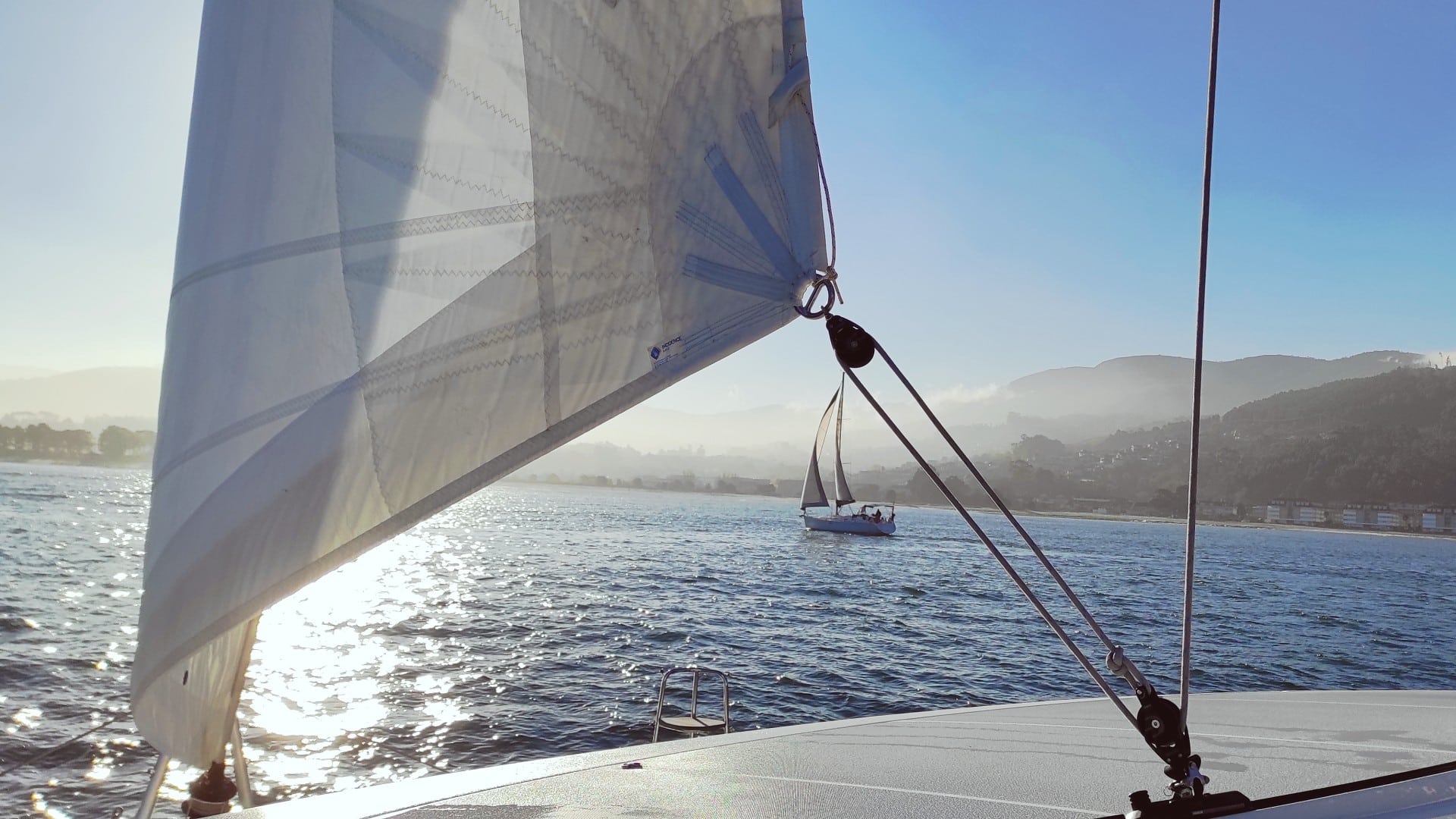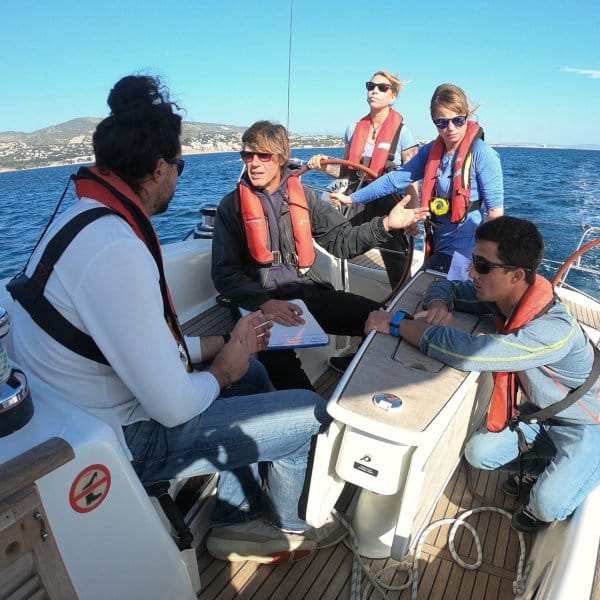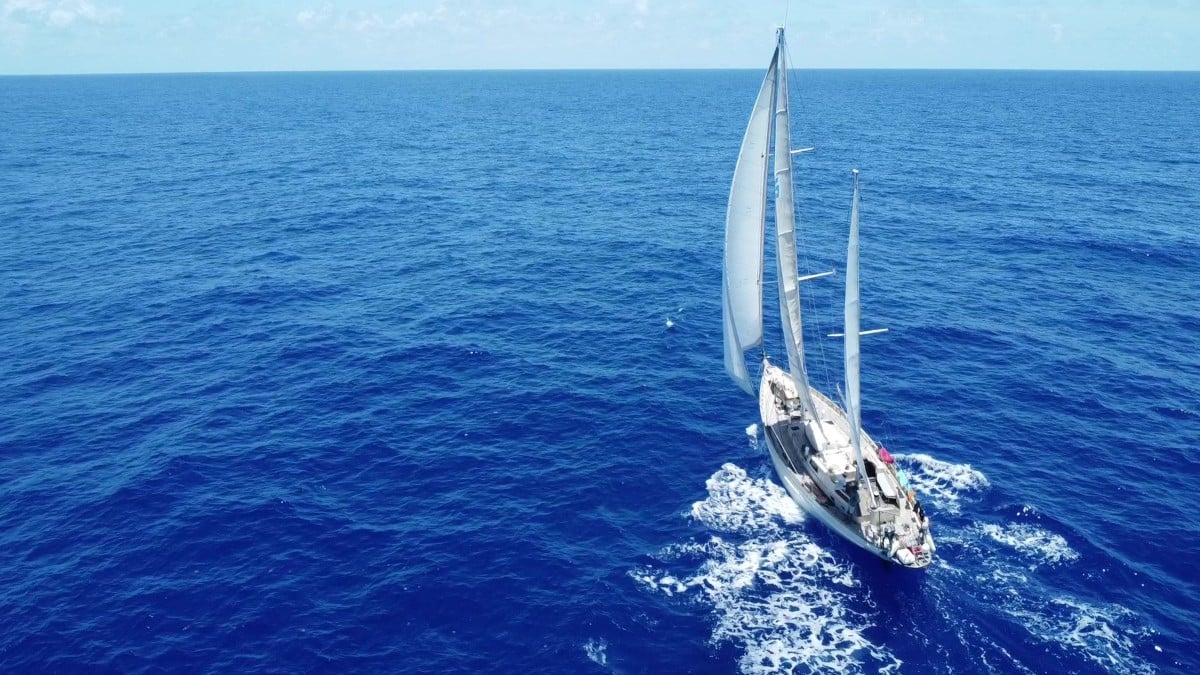
Everything you need to know to learn to sail
Recent articles
Ocean Sailing: an adventure without limits
If you have come this far, you are probably a sea lover who is considering learning to sail, the most environmentally friendly method of sailing, and you are looking for more information. In this article we are going to explain the keys to becoming a sailboat skipper. Learn to sail with Julio Verne Náutica’s nautical qualifications!
Do I need a license to sail?
The first thing you should know is that in order to navigate in Spain with boats of a power superior to 15CV it is necessary to have a nautical license or nautical title of recreational navigation.and that there are different types. The one you need will depend on the size of the boat you want to steer, and the amount of miles you want to get away from the coast (among other factors). You can compare all the Spanish nautical qualifications and their attributions.
The objective of these courses should be to prepare skippers to sail with confidence, self-sufficiency and safety, both for the boat and for the crew for which they are responsible. But the reality is that graduates are not prepared to be real skippers, unless they have previous experience.
It could be said that Spanish legislation legally allows sailing, but it is quite another thing if the qualified skippers know how to or should do it. Because the knowledge acquired with the nautical qualifications is eminently theoretical, and insufficient to skipper a pleasure boat safely..
How can I learn to sail?
Where precisely the current system of qualifications fails is in the lack of importance given to practice, the part that future skippers need to reinforce the most in order to learn. the part that future employers need to reinforce the most in order to learn how to to sail with confidence. The most common ways to learn to sail are:
- Sailing school with courses for adults.
- School of nautical qualifications that has courses of navigation of improvement (not to be confused with the official practices to obtain nautical qualifications).
- Rent a boat with a skipper, who is experienced and willing to teach.
You could also ask a friend or family member who has a boat, is willing and able to teach. But we warn you that trust is not always the best ally to learn.
Where can I learn to sail?
In Spain we have the privilege of being surrounded by different seas, so we have a multitude of places to choose from. The area you choose to learn to sail is very important to enjoy a recreational boat, choose wisely. recreational craft, choose wisely.
For example, you will see that on the internet there are many inland schools that do their practices in lakes to avoid travel. But these are places with much easier sailing conditions than the sea, and they are not going to prepare you when you want to sail on your vacations on the coast.
The Mediterranean is another very popular option for learning, but sailing in this sea is not at all easy, and presents quite a few disadvantages for those who are just starting out. Here we tell you the Mediterranean handicaps that you should take into account.
On the other hand, Galicia is considered to be the best sailing area in the Iberian Peninsula.because the estuaries provide a safe space for sailing all year round, with calm winds and waters. A conditions that we like to call Easy Sailing and which are ideal for learning.
How long does it take to learn to sail?
To establish approximate times, we usually differentiate between sailors who live near the coast and those who live far away.
- Residence near the coast: Ideally 4 hours of lessons per week for several months, outside summer. Practical classes in small groups, and sailing in short and intense periods, in all weather conditions.
- Residence far from the coast: In this case it is best to take intensive courses of several days, repeating these courses on a monthly or bimonthly basis until confidence and automatisms are acquired. Train in winter and enjoy in summer.
But there is no exact number of hours to learn to sail, since it depends on the learning capacity of the person, his previous experience, the variety of conditions in which he learns to sail…
In fact, the reality is that you never stop learning. But you should at least master the following basic skills: maneuvering in port, maneuvering at sea in various weather conditions, use of electronics at a basic and practical level, crew management, pre-planning and sailing with small and/or inexperienced crews.
Learn to navigate with Julio Verne Náutica
If you are thinking of obtaining a recreational boating qualification, or improving your sailing skills, in our school we have instructors who are true boating professionals, with passion for their work, experience of thousands of miles in recreational boats and a vocation for teaching.
Check our internship calendaror contact us and reserve the dates that best suit you.
Iván Pérez-Gándaras is CEO of Julio Verne Náutica and the main Director of the company's RYA Training Center. His vast experience is based on the highest nautical qualifications such as Yachtmaster without limits, STCW95 and RYA Yachtmaster Offshore with commercial endorsement. He has accumulated more than 20,000 ocean miles in deliveries and transatlantic crossings, in addition to 30,000 miles in scientific expeditions, including Antarctica and Newfoundland.
A trainer since 1993 and instructor of nautical qualifications since 2009, his background combines a solid technical background with exceptional practical experience. With a degree in Marine Biology from the University of Santiago de Compostela and World Champion in Dinghy Sailing (1989), his unique perspective ensures that Julio Verne Náutica's articles, training and charter services are delivered with the highest level of technical rigor and passion for the sea.
- Iván Pérez-Gándaras
- Iván Pérez-Gándaras
- Iván Pérez-Gándaras
- Iván Pérez-Gándaras





Comments are closed for this article!